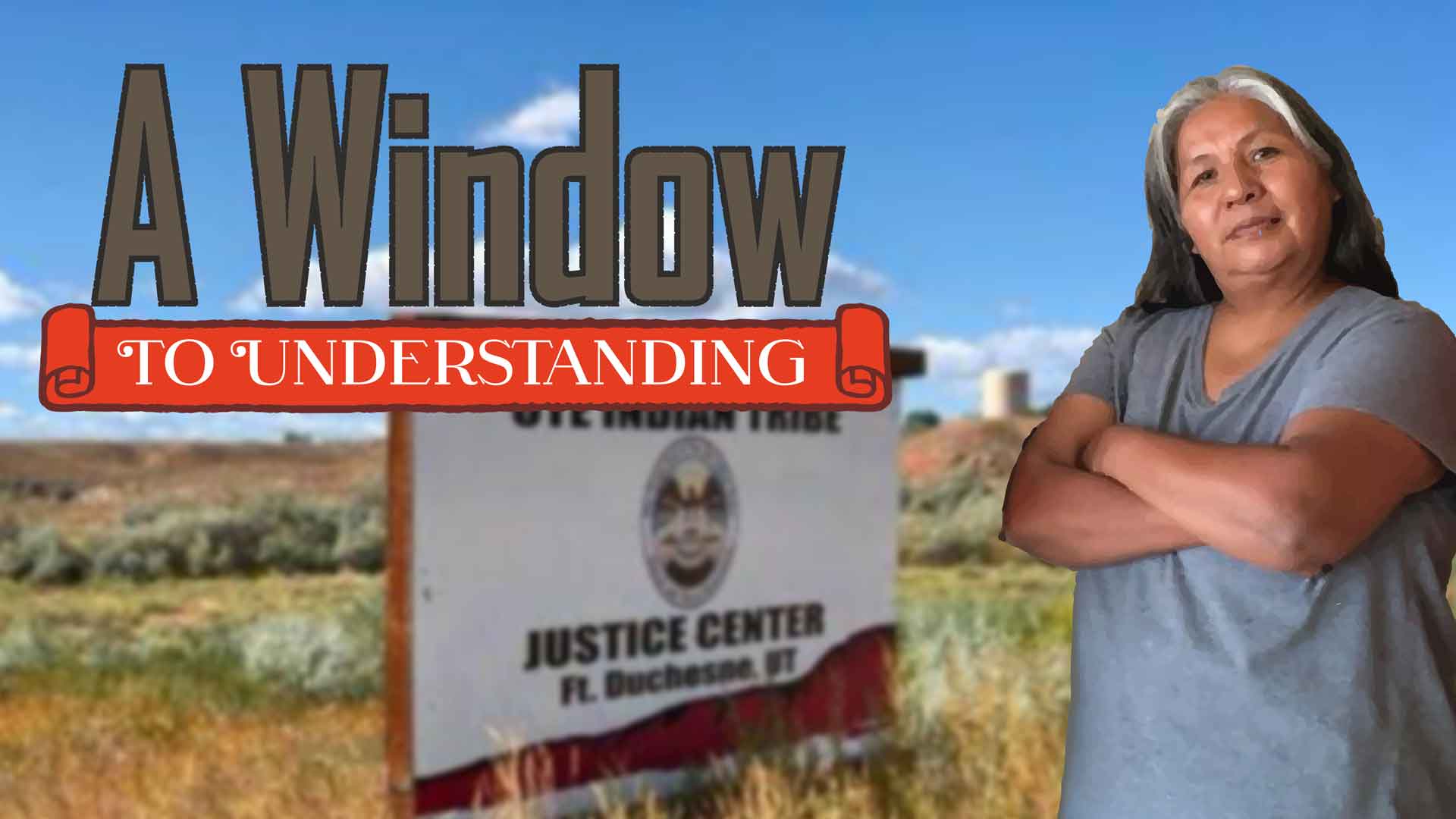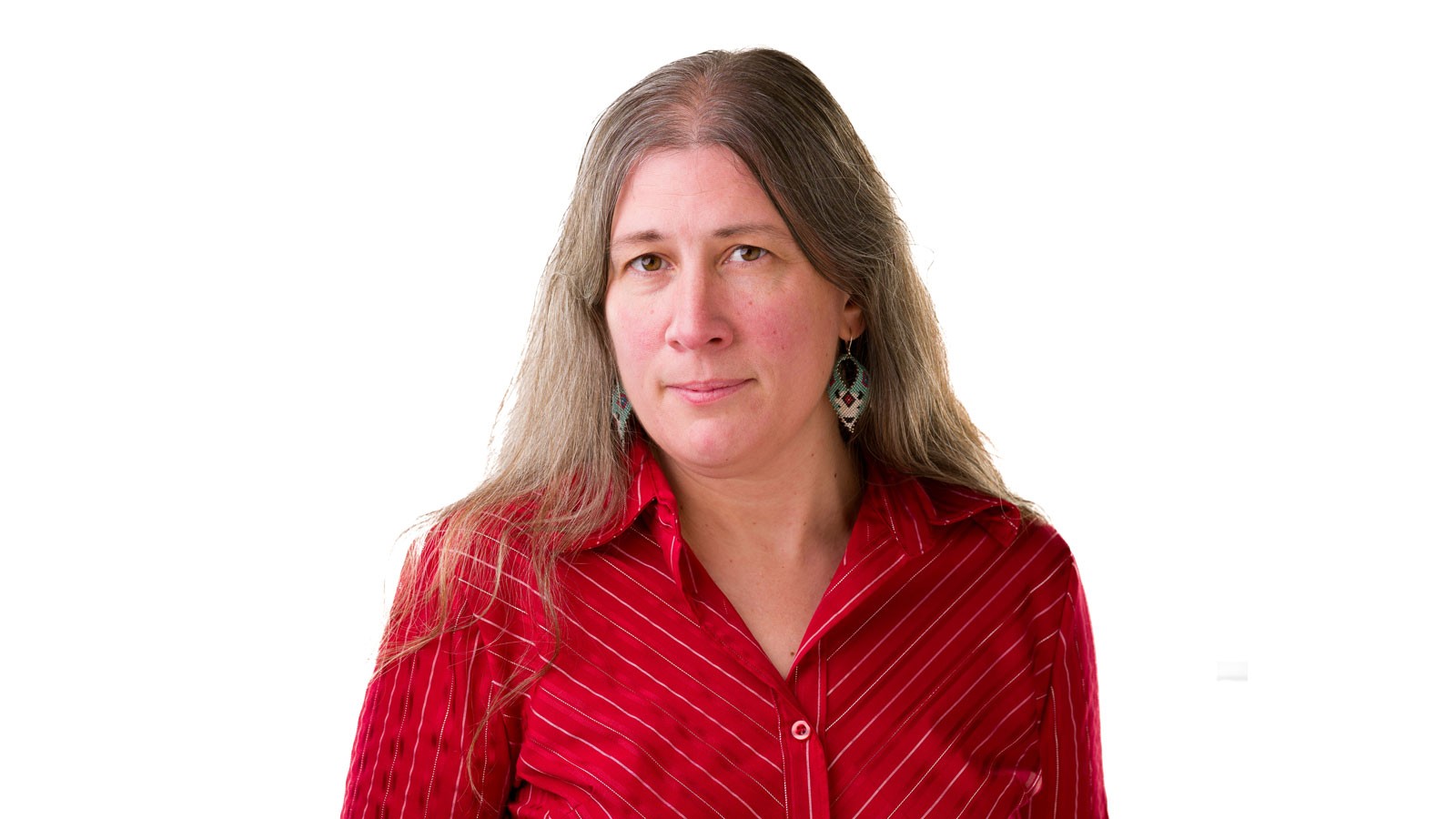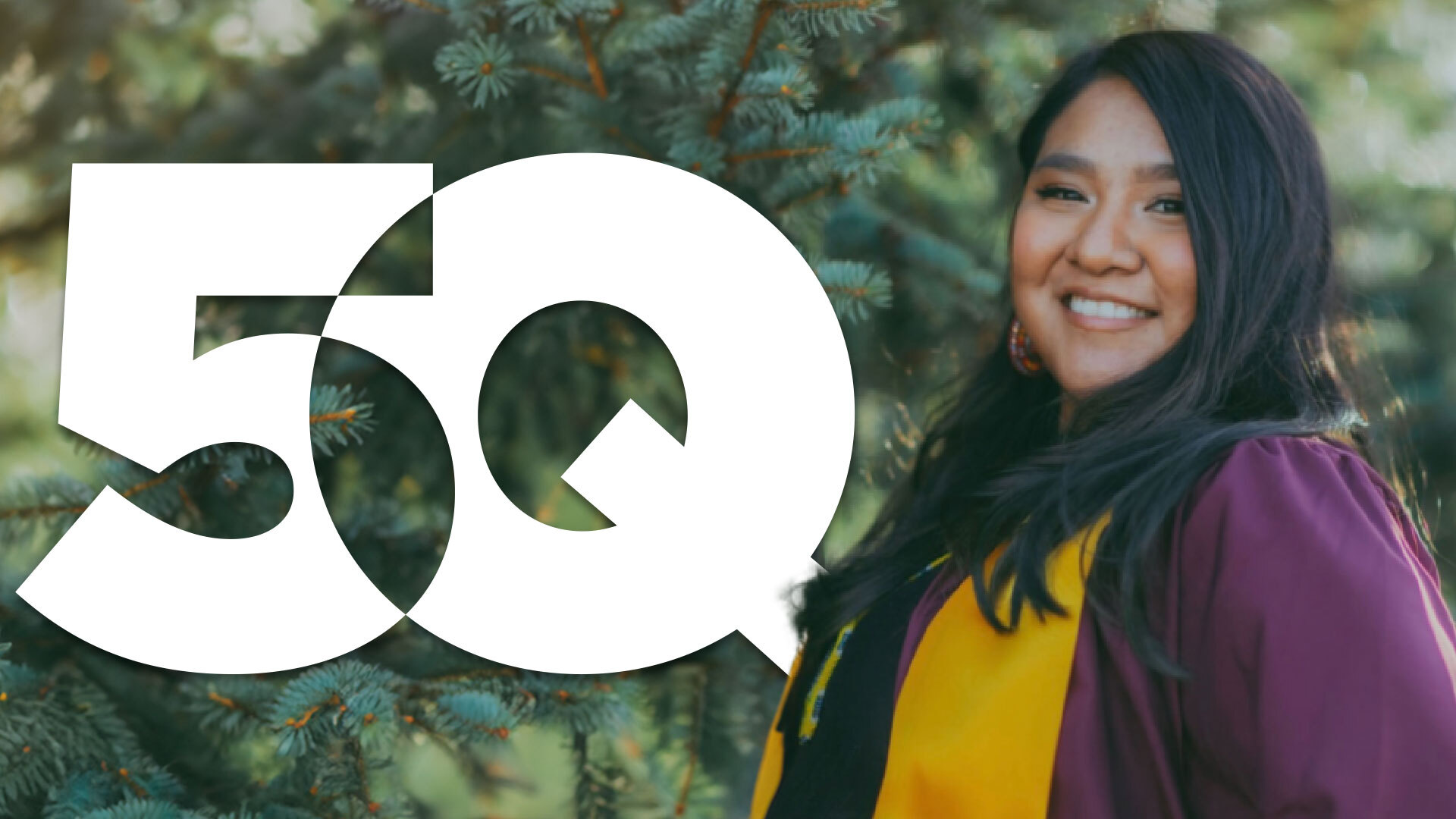
Vernal Utah, With guidance from research mentors, Koralene Tapoof redefines ‘nontraditional’ in a culture known for tradition
VERNAL, Utah —
As a member of Utah’s indigenous Ute Indian tribe, Koralene Tapoof is directed by tradition in many ways. Culture, conscience, custom. All are present in her rural home town of Fort Duchesne — population 3,000 — which lies smack in the middle of the nation’s second-largest Native American reservation.
But she’s, oh, so nontraditional in ways that cannot be described in terms other than fearless and farsighted.
Now age 54, Tapoof’s book of life contains significantly more chapters than an average college student. In 2000, when her children were just ages 2 and 5, she registered as a student at USU Uintah Basin in Vernal. Her 20-year journey will cumulate in May when she’s awarded her bachelor’s degree with a major in Sociology (Criminal Justice emphasis) and a minor in Native American Studies. Her experience speaks to the near Herculean task of earning a college degree within the spare moments left to a working adult and single mother. Remarkably, Tapoof persisted in taking classes one by one, semester by semester, for 20 years.
Those toddlers, by the way, are now ages 22 and 25.
Tapoof also earned the “nontraditional” tag as a recipient of a Utah State University Undergraduate Research and Creative Opportunity Grant. These annual money awards for worthy independent student projects most often go to projects on the Logan campus with its sizable population. In classrooms outside of Cache County (33 locations statewide), there’s a subtle attitude shift. Athena DuPont, coordinator of programs in the Office of Research, suspects that "our statewide URCO applicants are as competitive, if not more so, than the Logan campus students.”
As her sociology studies progressed, Tapoof found a research mentor in Mehmet Soyer, an assistant professor of Sociology on the Logan campus. The two made acquaintance when Tapoof took Soyer’s class on social statistics and social research. Over the last year, a relationship established via a video screen evolved into a real friendship.
As a budding researcher, Tapoof has eschewed the lab and classroom and centered her efforts in a corner of the state few outsiders have access to: the Ute Indian Reservation. Her continuing goal is a study among tribal members to understand their perception of oil and gas development in their home turf, the Uintah Basin.
There has been a number of studies looking at the public perception in boom towns that sprung up with the arrival of hydraulic fracturing of oil and gas, said Soyer. “But Koralene’s will be a unique study because we’re focusing on the reservation, which has its own government and doesn’t publicly disclose information.”
In fact, said Soyer, such a targeted study is possible only when conducted by a tribal member who appreciates and understands the Native culture.
Many times, said Tapoof, fellow tribal members “are not willing to share a lot of information with people from the outside. You have to just kind of respect the boundaries and you just can’t force whatever onto the person. They know I am not going to hurt them in any way or, you know, contradict what they’re saying or anything.”
But she does make this point: “It is a learning process,” she said.
Soyer cringes a bit when remembering his own learning moment during an earlier visit to the Uintah Basin. The dauntless researcher approached one tribal member to ask about his attachment to the community and land.
“The guy said, ‘What? That is a stupid question!’” remembers Soyer. “And, I was like, ‘You’re right. That is a stupid question.’ We need to rework this question or remove it from the questionnaire because it’s nonsense to tribal members. This place is sacred to them.”
Soyer soon brought in Dr. Jessica Schad, who joined the Sociology Department last fall as an assistant professor. She’s a veteran herself in conducting research on natural resource issues in rural areas.
First off, Tapoof needed a go-ahead from the Ute Tribal Council. That endeavor took eight months, with the resulting condition that Tapoof share her research with tribal leaders. As the study progresses among residents of the far-flung reservation, she’ll also be speaking with community and business leaders, as well as spiritual leaders. She’ll especially keep an eye out for young adults -- the “future generation” as she sees it.
“How are they going to know what’s going to happen, you know, five or ten years down from here,” she said. “It’s like you just have to get them geared up to start thinking in that direction.”
It is more difficult than one might think, Tapoof learned, to create interview and survey questions that are neutral yet target the core of an issue. Adds Schad, “You can’t really design a good survey instrument that is locally relevant unless you know the right questions to ask.”
Schad confirmed the importance of such pre-knowledge while conducting a survey in an energy-pumped boom town in North Dakota. In preliminary interviews, she learned of the subtle changes residents made in their daily lives when confronted by such new circumstances as traffic jams. The information changed the kind of questions she added to the subsequent survey, she said.
For example, more residents were “purchasing new trucks because they didn’t feel safe in cars anymore because of all the new traffic,” she said. “I would have never thought to add that.”
In the Uintah Basin, the researchers will undertake about two dozen interviews. They then hope to gather the resources to conduct a survey that can provide more representative information about what residents in the area think about oil and gas development. The initial interviews, Schad said, are qualitative with open-ended questions designed to get contextual information — the stories that make up “the bigger picture of what’s going on,” said Schad.
In October, the Logan instructors traveled to Uintah County in northeast Utah to offer advice and moral support to Tapoof on her first several interviews. Tapoof will wrap up this qualitative section of the study this summer. Then, she’ll move on to quantitative questions.
Soyer and Schad are excited about the success of Tapoof’s project, and they hope to work on similar or parallel research projects involving Native American students across the state.
— Story by Janelle Hyatt




